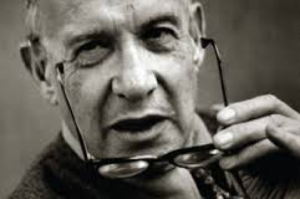The Man Who Invented Management

In his kindergarten class in Vienna, Austria a young Peter Drucker first learned about the concept of management. Fast-forward to present day and Peter Drucker is now known as the man who invented management. A writer, professor, and management consultant, he specialized in strategy and policy for businesses and nonprofits. Drucker is renowned for his contributions to shaping the foundations of the modern business world. When describing his work he called himself a “social ecologist,” one who explored the way people organize themselves and interact.
Drucker’s father was a high-level civil servant who often held gatherings at their home, inviting prominent intellectual leaders of the time. Young Drucker was a wallflower to their debates and discussions, recalling the greatest lesson he learned from those in attendance being from Sigmund Freud and Joseph Schumpeter who exposed him to the importance of entrepreneurship and innovation. Drucker later discovered his true passion, shortly after receiving his Ph.D. in international law, at a lecture given by leading economist John Maynard Keynes. It was during this lecture that Drucker had an epiphany, “I suddenly realized that Keynes and all the brilliant economic students in the room were interested in the behavior of commodities while I was interested in the behavior of people.”
Shortly after moving to America in the early 1930’s, Drucker took on his first big consulting gig with General Motors. He analyzed the corporation for two years participating in every meeting, speaking with all of the employees and analyzing production and decision making processes. The result of his experience at GM inspired “Concept of the Corporation,” an automatic bestseller in the United States and Japan. Driven by curiosity and the hunt for knowledge Drucker continued to write. Pulling from his consulting experiences with organizations such as IBM, Girl Scouts of the USA, P&G, Red Cross and more.
In total Drucker wrote 39 books, not counting the many articles he authored. His books predicted many of the major developments of modern business including privatization, decentralization, importance of marketing and innovation, and the rise of the information society. His books described an age where people began working more with their minds than their backs. He felt it important to preach to all businesses the value system and how organizations should act morally and ethically within society.
Drucker continued his sharing in management practices as a professor at Sarah Lawrence College, Bennington College, New York University, and finally spent the last 30-plus years of his career at Claremont Graduate University. His classes were so popular that they filled almost as soon as they opened. In July 2002, Drucker was awarded the Presidential Medal of Freedom in recognition of his work in the field of management. Drucker’s revolutionary work turned the modern management theory into a serious discipline that has left no organization untouched.
“Doing the right thing is more important than doing the thing right.”
“If you want something new, you have to stop doing something old.”
“There is nothing quite so useless as doing with great efficiency something that should not be done at all.”
“Results are gained by exploiting opportunities, not by solving problems.”
“Long-range planning does not deal with the future decisions, but with the future of present decisions.”




Leave a Reply
Want to join the discussion?Feel free to contribute!